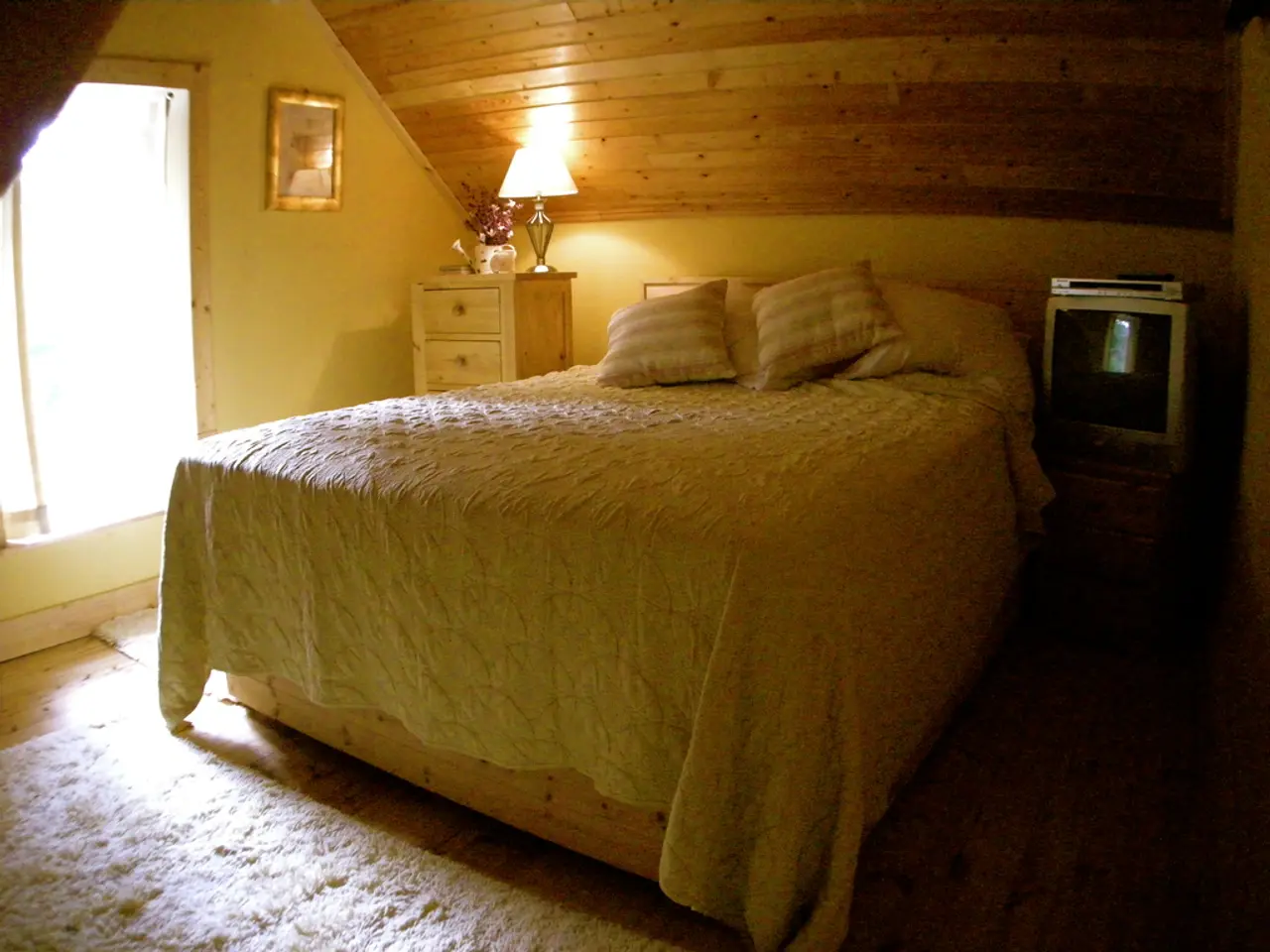Citizens of Berlin, refrain from purchasing a new residence at present
In the heart of Germany, Berlin continues to grapple with a persistent housing crisis. A friend's recent struggle to find an affordable rental for over two years culminated in the purchase of an apartment in Treptow, but the new home came with several construction defects, leading to immediate regrets.
The German government, recognising the urgency of the situation, passed a package of measures in June 2023 to boost construction. These included converting commercial areas to residential space more quickly and automatic approval of building permits if not processed within a specified time frame. The aim was to lower energy and building requirements for existing buildings, with the introduction of the "building type E" as a binding construction standard.
However, the effects of these measures are not immediate. It will take several years for the announced "construction boost" to significantly increase new construction activity in Germany and Berlin, potentially easing the price pressure on the real estate market in the medium term.
The "Lock-in Effect" in Berlin has caused rents to increase by 74 percent, with investors benefiting and tenants despairing. Despite a slight decrease in rent increases in the last half-year, affordable rental options remain scarce. Without contacts or the necessary money for a real estate agent, finding an affordable apartment in Berlin is difficult.
In the rental market, many apartments are being allocated through off-market deals, removing them from the rental market. Berlin has over 7,200 active Airbnb listings generating around €30K per year on average each, reflecting strong utilization of housing stock for short-term rentals. This reduces the availability of long-term rental apartments and contributes to upward pressure on rents and housing costs.
Older couples or singles are staying in large apartments, while larger families are living in often cramped spaces due to high rents in new buildings. The old rule of not spending more than a third of available money on housing may no longer be applicable in the current Berlin housing market.
In the long run, this could help curb inflation, giving the European Central Bank room to lower interest rates. However, with current high mortgage interest rates, a typical financing of 400,000 euros without significant equity could result in a monthly rate of between approximately 1800 and 2000 euros, making home ownership unaffordable for many people in Berlin.
Desperate tenants are resorting to buying apartments despite not having the necessary capital. The current issues and trends in the Berlin rental and housing market in 2025 include a continued shortage of rental supply, rising rents, stagnation in new construction, and uneven recovery in existing property sales. The average citywide rent in Berlin has reached about €16.00 per square meter, an 11% increase year-on-year, reflecting strong demand amid limited supply. In contrast, new construction remains very low due to high building and financing costs, with only around 750 new-build apartment contracts notarized in the first half of 2025, a significant drop from previous years.
In summary, Berlin's housing market in mid-2025 is characterised by strong rental price growth, very limited new construction constraining supply, moderate recovery in existing property sales, rising use of short-term rentals reducing long-term housing supply, and an overall structural bottleneck that limits affordability for many residents. The challenges faced by Berliners in finding affordable housing are complex and require comprehensive solutions to ensure a more equitable and sustainable housing market.
[1] Berlin's Housing Market Report 2025
[2] German Rental Price Index 2025
[3] Berlin Office Market Report 2025
[4] Impact of Short-term Rentals on Berlin's Housing Market 2025
- To tackle the housing crisis, investors might consider exploring opportunities in Berlin's real-estate market, particularly in long-term rental units, given the continued shortage of rental supply and increasing rental prices.
- As a result of the high mortgage interest rates and the current housing market conditions, many Berliners may find it challenging to finance home purchases, leading them to seek alternative solutions, such as investing in the housing market or even purchasing apartments despite lacking the necessary capital.




